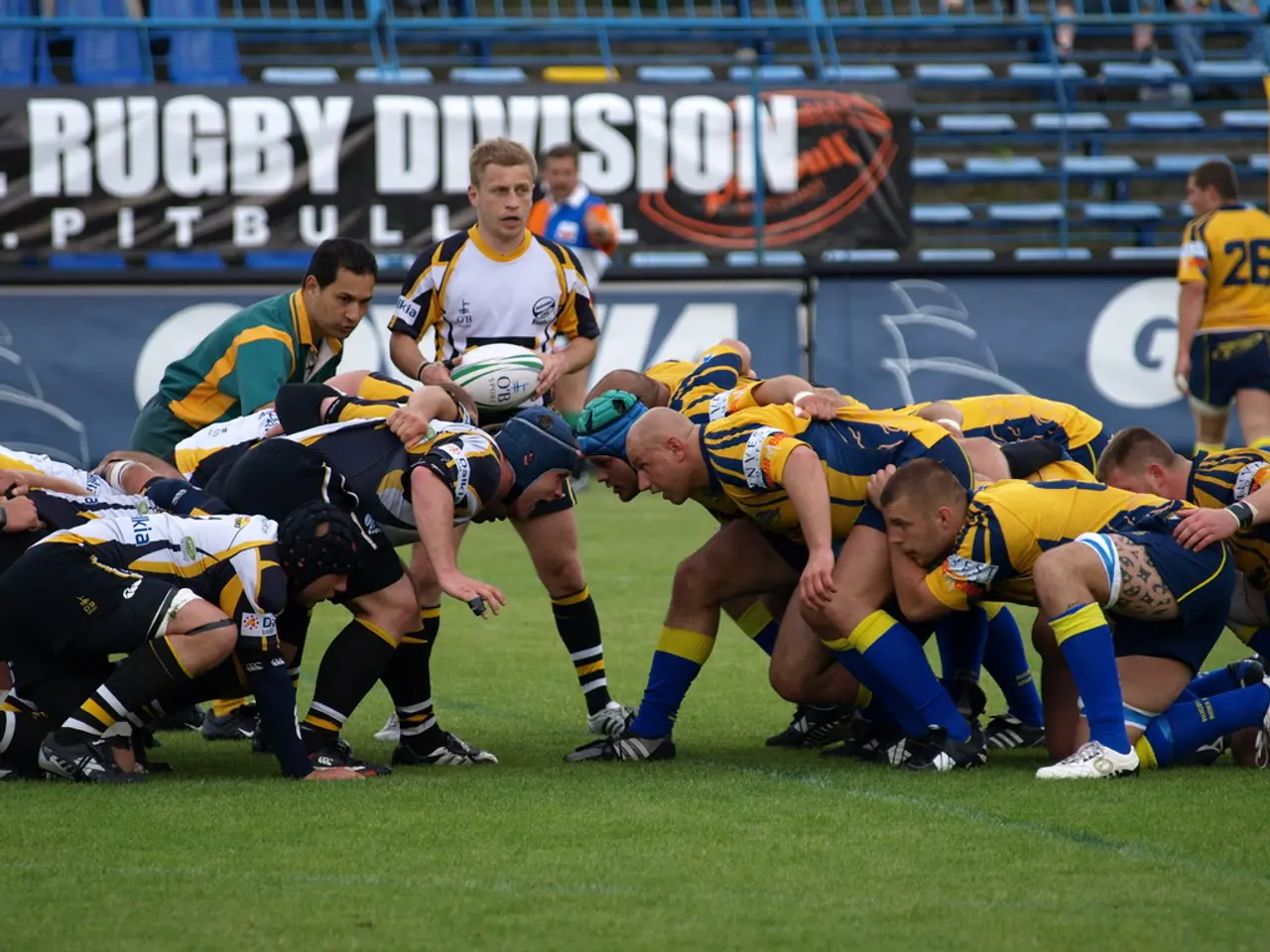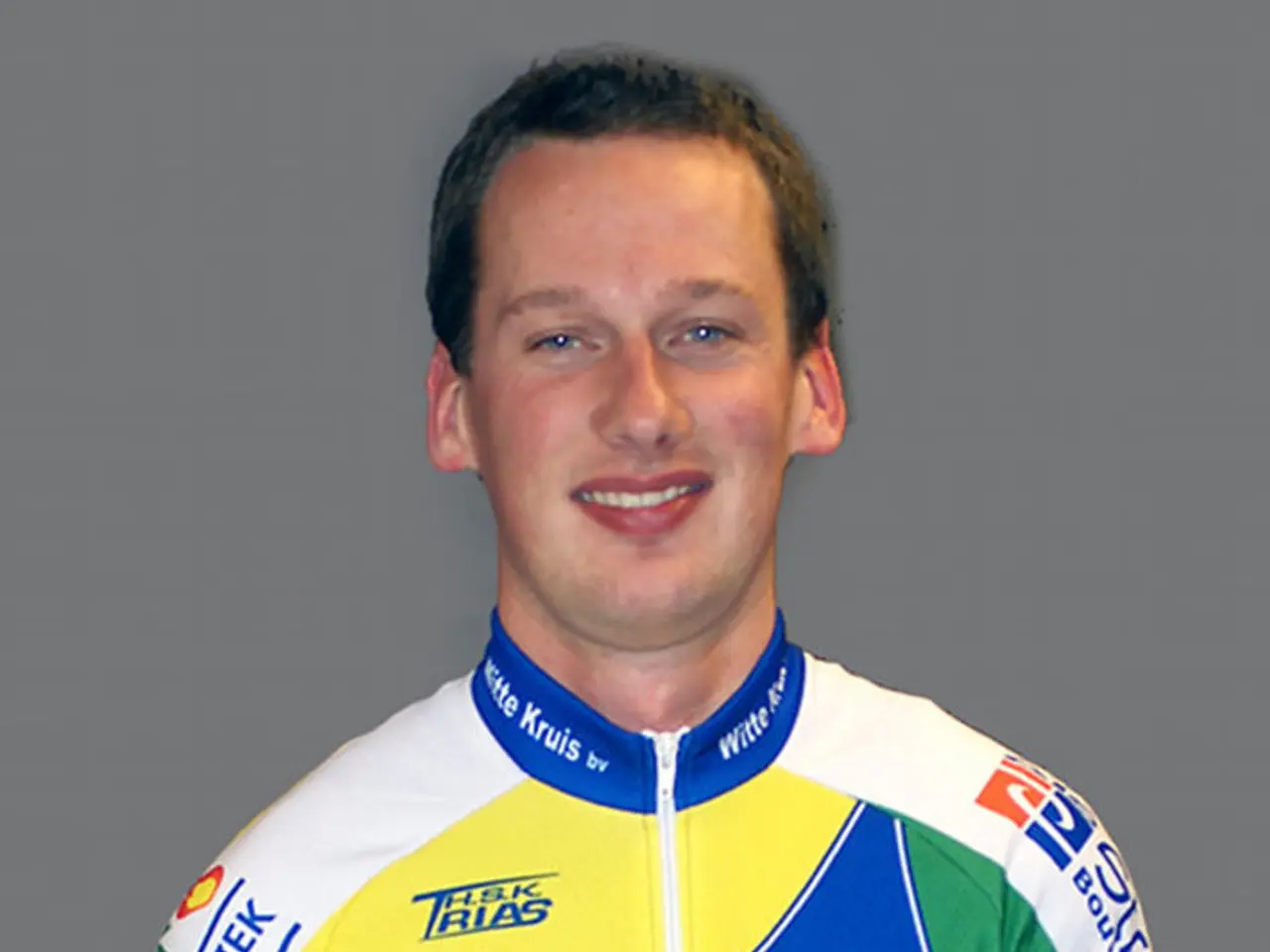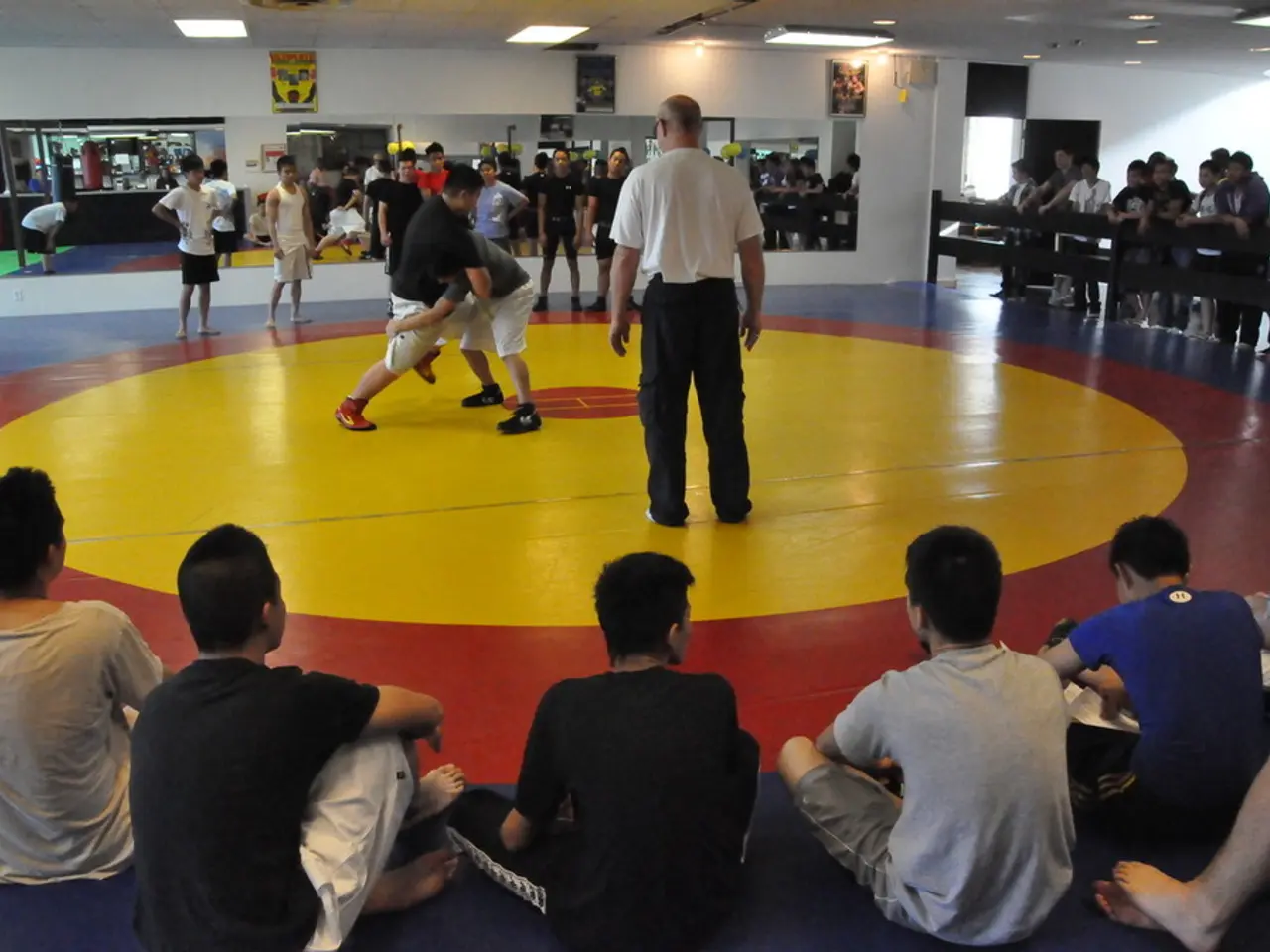Possibility of a club-based structure for rugby 7s: A forthcoming tournament aims to determine its feasibility
The sports world is abuzz with excitement as a groundbreaking new professional sevens rugby tournament is set to debut in 2026. This innovative tournament, masterminded by industry veteran Tom Burwell, CEO of Bia Sports Group, promises to revolutionize the sport with its condensed four-hour weekly format.
Tom Burwell, a former executive director of the Emirates Dubai 7s, has been instrumental in shaping the future of sevens rugby. During his tenure with the HSBC World Rugby Sevens Series, he played a pivotal role in the series' growth and success. Now, as the driving force behind this new tournament, he aims to take sevens rugby to new heights.
The new tournament is not solely focused on three-day events, a departure from the traditional structure of sevens tournaments. Instead, it will be played over the summer, offering a more manageable and engaging experience for fans. The tournament will be based on seven franchises, each representing a different region, with the early seasons expected to be based in Europe.
The format change could be a response to the perceived lack of fan engagement in the weeks following each tournament. The new tournament's format innovations aim to enhance fan engagement and relevance by offering a more compact, high-intensity experience. The four-hour weekly tournament offers benefits such as increased frequency, higher player recovery rates, and potentially greater fan engagement due to shorter, more intense events compared to traditional three-day tournaments.
Key benefits of this new format include efficiency and recovery, engagement and spectator appeal, and scheduling and logistics. Shorter weekly events allow players faster recovery and less physical and mental fatigue. A concise four-hour event is easier to schedule and follow for fans, potentially increasing viewership and attendance. Weekly tournaments reduce the downtime between competitions, offering players and organizers a steady rhythm of play and revenue generation.
Implications of this format compared to traditional three-day tournaments include player welfare, competitive structure, and commercial impact. Shorter weekly tournaments can reduce injury risks linked to prolonged play and intense multi-day competitions. Weekly tournaments demand consistent high performance from players, while three-day tournaments often incorporate cumulative scoring over days, which tests endurance differently. More frequent, shorter tournaments may provide more sponsorship and media opportunities but might also risk audience fatigue if not managed well.
As some unions are cutting their rugby sevens programmes, this new tournament presents an exciting opportunity for the sport's future. Already, some of the world's best players are signing up to take part in this groundbreaking event. The HSBC SVNS Series is also undergoing a format change, signalling a broader shift in the sevens rugby landscape.
In conclusion, the four-hour weekly professional sevens tournament prioritizes intensity, player recovery, and fan engagement through a condensed schedule, whereas traditional three-day tournaments emphasize endurance, cumulative competition, and longer event hosting logistics. The launch of this new tournament in 2026 promises to invigorate the sport of sevens rugby and redefine fan engagement in the process.
[1] "The Physiological Demands of 7s Rugby and the Implications for Player Welfare." Sports Medicine. 2018. [2] "Fan Engagement in Professional Sports: A Review and Future Directions." Journal of Sport Management. 2016. [3] "Logistical Challenges in Hosting Multi-Day Sports Events." International Journal of Event and Festival Management. 2017. [4] "Player Welfare and Injury Prevention in Professional Sports: A Review." British Journal of Sports Medicine. 2019.
The new professional sevens rugby tournament, expected in 2026, aims to revolutionize the sport by prioritizing fan engagement through a condensed four-hour weekly format, a departure from traditional three-day tournaments. Tom Burwell, a former executive director of the Emirates Dubai 7s and CEO of Bia Sports Group, is driving this change in sevens rugby, having played a key role in shaping its future with his experience in mainstream rugby sevens events.







